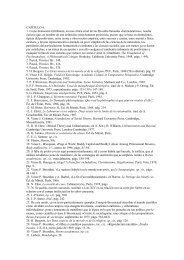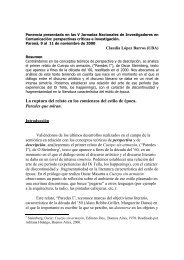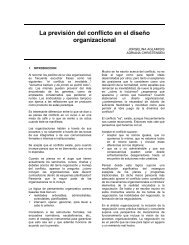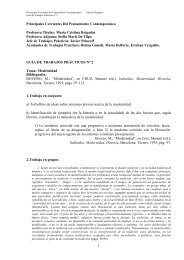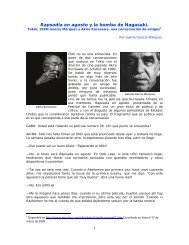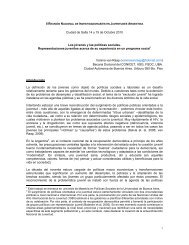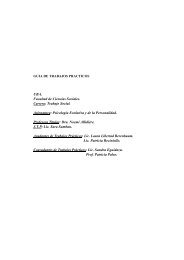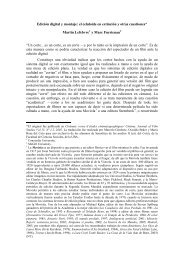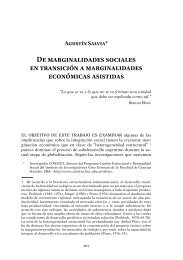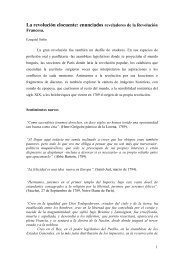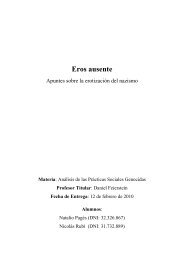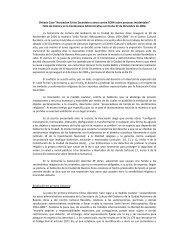Charisma Reconsidered
Charisma Reconsidered
Charisma Reconsidered
You also want an ePaper? Increase the reach of your titles
YUMPU automatically turns print PDFs into web optimized ePapers that Google loves.
6<br />
role-models who break new ground, and if we consider the ‘dangers’ that they<br />
appear to their audiences to overcome, the phenomenon is not so different.<br />
<strong>Charisma</strong> seems to collapse into personal style, but in a world in which the old<br />
interdicts have lost their power, style itself becomes a matter of experimental<br />
success in the face of social danger.<br />
KEYWORDS charisma, leadership, norms, sacred, taboo, Weber<br />
If, at the time of Kant, someone had posed the question of which theological and<br />
moral concepts would survive in public discourse after the passage of two<br />
centuries, a few philosophes might have predicted that the concept of sin would<br />
have disappeared, but few thinkers of any kind, and certainly not Kant, could have<br />
imagined that the concept of duty would have virtually disappeared. No one<br />
would have guessed that the concept of charisma would have revived from its deep<br />
theological obscurity (the term had barely been mentioned for centuries), been<br />
generalized, and become a commonplace description, applied to political leaders,<br />
businessmen, actors, celebrities, and so forth. Yet this is precisely what did happen.<br />
After, and probably influenced by, the assassination of Kennedy and the use of the<br />
term by his house intellectual, Arthur Schlesinger, Jr, to describe his appeal,<br />
‘charisma’ became part of the culture, a term of ordinary discourse, meaning a<br />
property of a person who is exceptional and influential or magnetic, and whose<br />
influence and magnetism has, so to speak, an inner source. 1<br />
The term has been widely appropriated. ‘<strong>Charisma</strong>’ is the name of a line of<br />
yachts, the stage name of a female movie star (<strong>Charisma</strong> Carpenter), the name<br />
of a German modeling agency, a Colorado on-line game developer, an Antiguan<br />
web-hosting company, a British record company, a Swiss rock band, a southern<br />
California company that designs floats for parades, and an exotic car rental<br />
establishment in Yorkshire, among many other uses. In my own small community,<br />
‘New <strong>Charisma</strong>’ is the name of a hairdressing establishment. It now occurs with<br />
some frequency in the United States as a woman’s given name. Even the religious<br />
movement known by the name ‘charismatic’ was inspired more by the cultural<br />
usage that began with Max Weber’s appropriation of the term than its original<br />
theological sense, which has now, under the influence of the wider use of the<br />
term, been rediscovered. In assessing the contemporary relevance of charisma,<br />
the strange journey of this concept needs to be kept in mind: talking about<br />
charisma is not a matter of simply looking at the reception-history of Weber’s use<br />
of the term, or its application to empirical sociological research. One must<br />
understand the background tectonic shift in the conditions of social and political<br />
life, however obscure, that produced this reversal of fortune, a reversal that is, if<br />
not unique in the history of concepts, unusual enough to inspire reflection.<br />
JOURNAL OF CLASSICAL SOCIOLOGY VOL 3(1)



